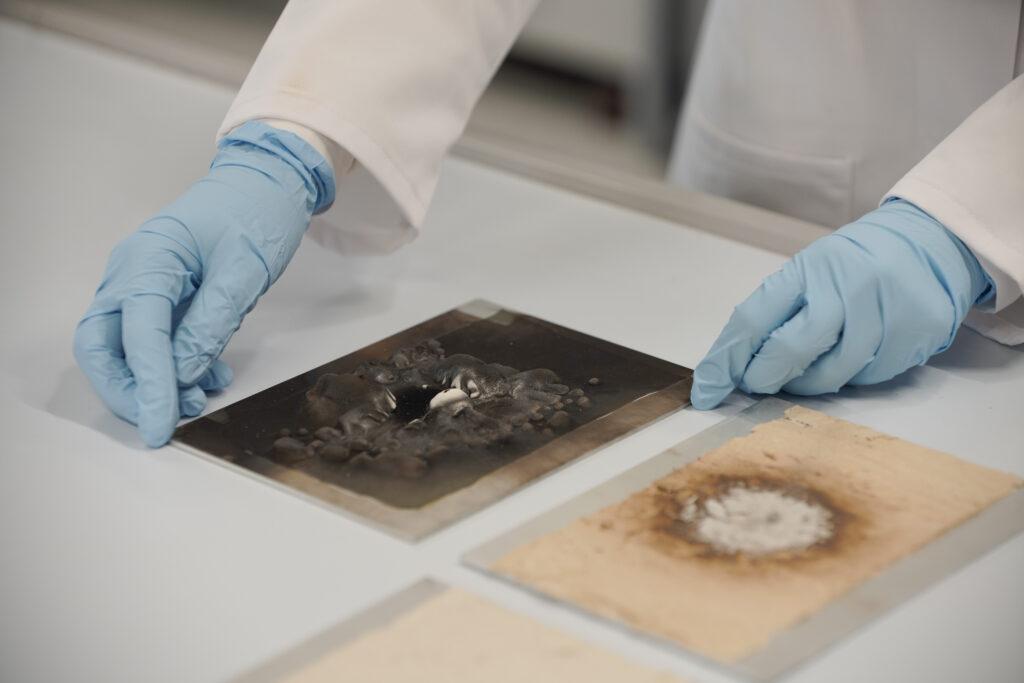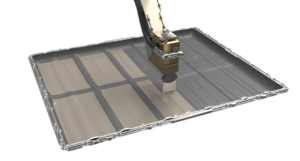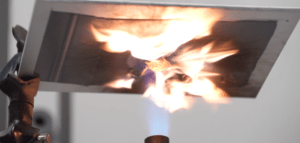


Henkel launches new fire protection solutions for safer EV batteries
As the pace of EV adoption and innovation accelerates, OEMs and EV battery
manufacturers are striving to develop more efficient ways to build batteries
at scale. At the same time, fire protection remains critical to ensure
vehicle batteries provide the best possible safety in the case of accidents
and fires. This is especially important as regulatory demands become more
rigorous. Hence, EV battery safety technologies that delay the spread of
fire have never been more vital.
To take on this challenge Henkel, a leading partner to the automotive
industry, has launched two new protective coating products designed to
shield the battery housings against heat and fire in the case of a thermal
runaway event – Loctite EA 9400 and Loctite FPC 5060. When applied to
battery packs, the coatings help to inhibit and delay the spread of fires to
protect the passengers as they evacuate the vehicle. Meanwhile, their
efficient and cost-effective application processes ensure that manufacturers
can continue to optimise battery production without compromising on safety.
“Battery safety is an increasingly important topic for OEMs and battery
manufacturers alike,” explains Stephan Hoefer, Market Strategy Head for
E-Mobility at Henkel. “Thermal runaway events are possible in any
lithium-ion battery, but the key is to minimise the risks and consequences.
At Henkel, we are seeking to minimise the impact of such events through
effective and practical solutions that can delay the spread of fire. This is
vital to ensure that passengers have sufficient time to evacuate the
vehicle.”
Whether due to mechanical, thermal, or electrical incidents – thermal
runaway events can occur when a battery cell enters into a heating state and
ignites a fire that spreads to neighbouring cells. Battery safety solutions
help to reduce or slow such events, thereby increasing time for vehicle
evacuation. This time window is increasingly subject to regulation: China
has already enacted regulations that specify a required time window and
other markets are expected to follow suit in due course as regulatory
frameworks for EV safety evolve.
“OEMs and battery manufacturers are challenged to find efficient solutions
that support large-scale automated manufacturing and position them well
against legal regulations. At Henkel we aim to anticipate our customers’
current and emerging challenges and hence developed purpose-built and tested
products specifically to help them meet this demand for fire protection in
EV batteries,” commented Uwe Franken, Global Technology and Product
Development Leader for E-Mobility at Henkel. “The launch of two new Loctite
coating products for fire protection demonstrate that battery safety is a
key focus area for Henkel.”
Designed for automated mass production, Loctite EA 9400 and Loctite FPC 5060
can be applied either by “spray” or “flat stream” and both are compatible
with common automated dispensing systems. In line with Henkel’s commitment
to sustainability, Loctite 9400 and Loctite FPC 5060 both cure at room
temperature, thereby helping to reduce energy consumption and emissions.
Loctite EA 9400
Loctite EA 9400 is a two-component, active flame-retardant, epoxy-based fire
protective coating designed for the battery pack housing. With minimising
weight of EVs and batteries a high priority, the product has been designed
to be applied in a thin layer that doesn’t add much weight to the battery.
Thanks to its foaming characteristics and tough formulation for outstanding
environmental resistance, Loctite EA 9400 can be applied on both the inside
and outside of the battery pack housing to provide excellent versatility. As
well as providing light-weight thermal protection, it also prevents battery
box corrosion.
Loctite FPC 5060
Also created for the battery pack housing, Loctite FPC 5060 is a
one-component, water-based, inorganic material that does not form any smoke
or fumes when exposed to flame. Its unique, inorganic formulation does not
include any hazardous chemicals and produces no smoke, no fumes, and no
carbon during a fire – thereby further protecting passengers.
“Electrification of transportation is a huge opportunity that also presents
numerous overlapping challenges for OEMs such as efficiently scaling up
production while ensuring the highest safety standards. This is where
innovative materials and processes will be mission-critical,” explained
Marvin Romberg, E-Mobility Business Development Manager EIMEA at Henkel. “As
a long-time trusted partner to the automotive industry, Henkel is helping
our customers stay ahead of the curve with state-of-the-art products built
on pioneering research. We are also providing our customers with
comprehensive support for process implementation and working in
collaboration with dispensing equipment suppliers to deliver a coherent,
joined up-approach across the entire value chain.”










More Stories
Auto Repair Services: Keeping Your Vehicle Road-Ready
Unleashing Creativity with Vidnoz: The Best Free AI Video Generator in 2025
The Connection Between Air Drying and Energy Efficiency in Industrial Settings